AHC Will Update Economic Impact Study of Horse Industry in 2017
July 28, 2016 Comments Off on AHC Will Update Economic Impact Study of Horse Industry in 2017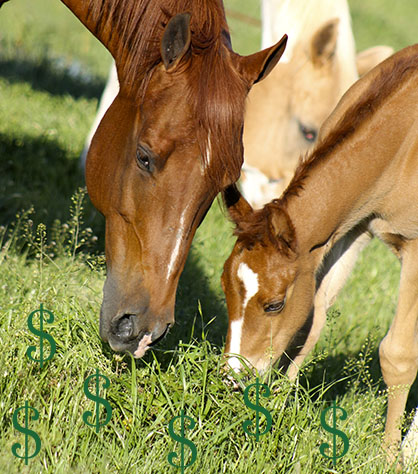
The 2005 Economic Impact Study documented the economic effects of the racing, showing, recreation and other segments of the horse industry. It established that the horse industry in all its segments, including racing, showing, and recreation, had a $39 billion effect on the US economy, involved more than 4 million Americans and 9.2 million horses, and supported 1.4 million full-time jobs. The study also provided invaluable demographic data and insights into professions and other industries that are impacted by the equine ownership.
Continue reading …Interventional Ultrasound: Changing the Way Equine Vets Manage Patient Problems
July 27, 2016 Comments Off on Interventional Ultrasound: Changing the Way Equine Vets Manage Patient Problems
“Interventional ultrasound can be used to perform minimally invasive procedures in horses from the removal of foreign bodies and fracture fragments to surgical procedures such as patellar ligament splitting,” Dr Whitcomb said.
Continue reading …What’s New in Equine Surgery? Standing Versus General Anaesthesia
July 26, 2016 Comments Off on What’s New in Equine Surgery? Standing Versus General Anaesthesia
I’ve witnessed cases where surgery under general anaesthesia is both dangerous and unnecessary, for example, in the surgical treatment of splint bone fractures. The other key area where surgery is associated with complications during recovery from anaesthetic is fracture repair. These sort of complications can now be avoided thanks to our ability to perform surgery in the standing sedated horse,” he said.
Continue reading …Vet Checks- It’s Not a Simple Pass or Fail
July 22, 2016 Comments Off on Vet Checks- It’s Not a Simple Pass or Fail
When it comes to pre-purchase examinations, the veterinarian’s job is neither to pass nor fail a horse. Rather, it’s to provide the purchaser with information about existing medical problems and explain the possibility of future ones – especially in light of the horse’s intended use.
Continue reading …Horse Castration – What Could Possibly Go Wrong?
July 20, 2016 Comments Off on Horse Castration – What Could Possibly Go Wrong?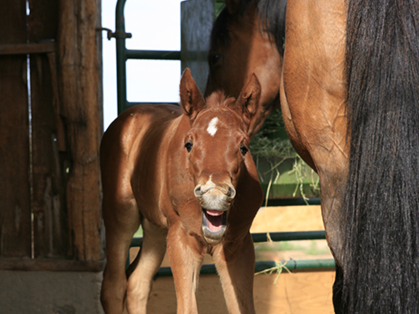
“The reality is that complications following castrations is quite common and include swelling, hemorrhage and infection. There are, of course, effective ways to manage or treat these complications, but what continually surprises me is the reaction of owners when their horse does have a complication following surgery.”
Continue reading …New Technique to Treat Kissing Spine in Horses
July 18, 2016 Comments Off on New Technique to Treat Kissing Spine in Horses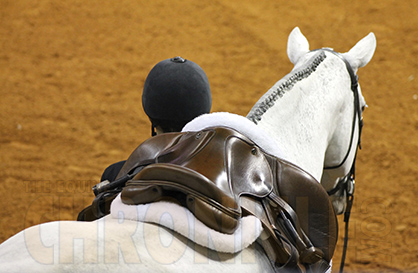
“It’s normal for horses to show significant postoperative pain following conventional open surgery of the dorsal spinous process. However, with this relatively new technique, postoperative pain is unusual, horses are discharged the following day with oral antibiotics and the recovery time is much faster,” Dr Bladon said.
Continue reading …Equine West Nile Threat Increases During Peak Mosquito Season (July-October)
July 14, 2016 Comments Off on Equine West Nile Threat Increases During Peak Mosquito Season (July-October)
Horses are at highest risk of contracting West Nile virus during peak mosquito activity, which occurs July through October in the United States.1 However, there’s still an opportunity to help protect horses against this life-threatening disease.
Continue reading …Veterinarians Discover Pistacia Trees Toxic/Deadly to Horses if Ingested
July 13, 2016 Comments Off on Veterinarians Discover Pistacia Trees Toxic/Deadly to Horses if Ingested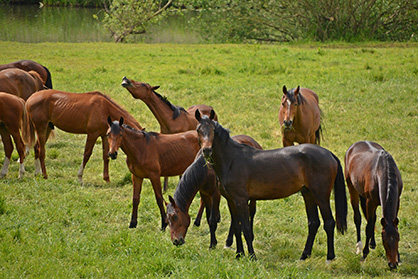
UC Davis veterinarians are warning horse owners to keep their animals away from Pistacia orchards, as the leaves and seeds of this genus can cause hemolytic anemia, and be fatal, if ingested.
Continue reading …
Horses carry 60 to 65 percent of their weight on their forehand while moving.2 And the faster a horse moves, the more stress on the joint. To put this in perspective, a 1,000-pound horse is carrying approximately 625 pounds by the front legs.
Continue reading …Piles of Grass Clippings Are NO Tasty Treat For Your Horse!
July 8, 2016 Comments Off on Piles of Grass Clippings Are NO Tasty Treat For Your Horse!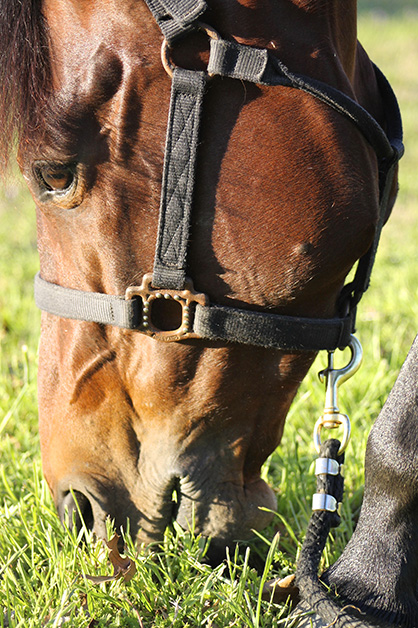
Grass clippings that stay on the pasture after mowing, where they can dry in small amounts, are generally not a problem. But never gather them into piles to feed them to your horse. Here’s why…
Continue reading …







